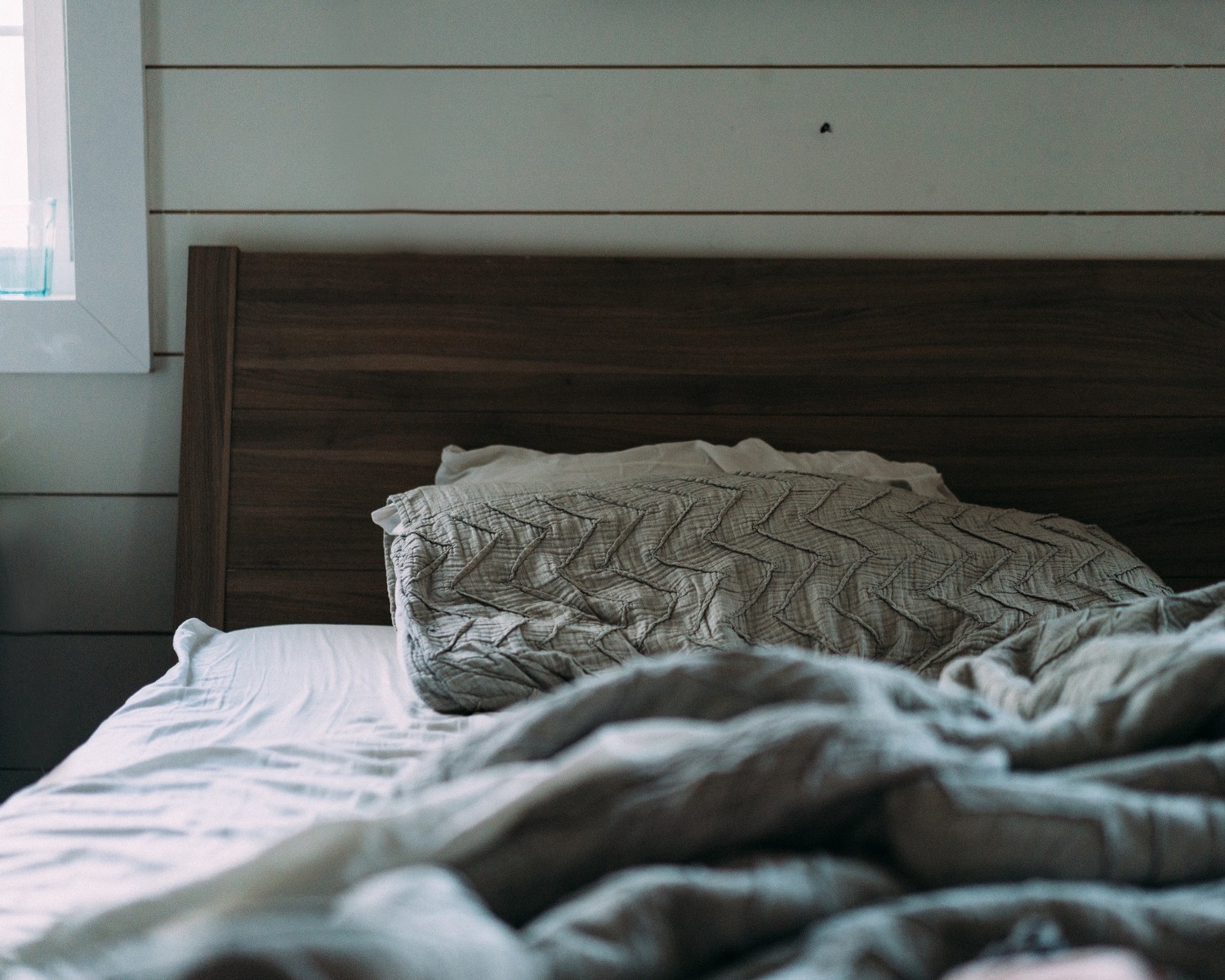When my alarm went off, I’d feel some depression, stress, and a little anxiety. I even chose a calming tone so waking up didn’t come with shock as well. Didn’t work. My eyes would open, but I’d have a hard time adjusting them, especially if still dark in the room. Let’s not mention the overwhelming grogginess that would tag along as I’d drag myself to get ready. The thing about alarms, too, being shocked to alertness first thing in the morning didn’t wake me up; I’d hit the snooze button and feel a burst of exhaustion moments after opening my eyes.
I’d say, please, just five more minutes. No, fifteen. No, thirty. OK, not working today. (Can’t we all relate to that?)
To boot, I’m someone that startles easy and am quite jumpy (go ahead and laugh). I have sensitive ears. Alarms need to be loud (no duh) so they wake you up, but I’ve always viewed alarms as a disruption. If you’re waking up seconds after falling out of dream world, you could be disturbing deep sleep. Going from quiet sleep to blasting sound is not how a day should be started (in my opinion). My heart would jump all over the place in my chest, and anxiety would creep in. I’d greet the sun with nausea and I could never figure out why I had that. For a long time, I had suspected that my difficult mornings had to do with how I’d first meet a new day.
As I always make sure to note, we’re all different and some people need alarms. Let’s not forget that alarms aren’t always trustworthy either, on the contrary, and I’ve sometimes slept through them. I’m someone that wants control, so you know, I don’t miss out on life, or sleep through appointments, meetings, gatherings.
Waking up with no alarm means you’ve learned your circadian rhythm. After I read more about this and did lots of research, my morning agony got explained: ditch the alarm! To provide a simple definition, the circadian rhythm is like a “body clock”, or a cycle that tells us when to sleep, rise, and eat. Your master clock is located in the brain. This process is something that must be put in practice and won’t just happen in one day, and it differs from person to person (everyone has varying sleep/wake cycles). If you’re not getting at least 7 or more hours of sleep a night, you’ll have a harder time creating a schedule that allows you to rise naturally. I’ve been learning about my body’s sleep/wake cycles and have been fascinated by how we (or, I) could control this rhythm to my advantage.
In the last month, I’ve kept a journal and would track when I’d feel tired at night and most alert first thing upon rising. I’d start getting tired at 8:30, and since I’m an early bird, I go to sleep early at the same exact time each night. Maintaining a schedule and appropriately responding to your brain and body’s needs will also guarantee success.
My journey went from an almost full year of struggling with insomnia and an inability to fall asleep, to curing insomnia with evening routine changes, which then led me to focus on how my brain and body functioned together during sleep/wake transitions. This interest came about (two months or so ago) when I woke up one morning at 6:00 by accident, with no alarm, and couldn’t go back to sleep. I didn’t want to. I felt good for the first time in probably two years! I wanted to give the no alarm idea a try in the long term, so I first approached this process starting with my evenings, the time I went to bed.
In the last two months, I put it to the test. This morning I woke up naturally at 6:00 and wow, I love life with no alarm. As I’ve said in previous articles, our brains and bodies love routines. You’ll reduce stress; feel refreshed, alert and well-rested once you’ve figured out your circadian rhythm. Life without an alarm has been much better and I’ve been even more productive, mentally sharper, less frazzled/stressed, and I’ve developed a new appreciation for mornings. I no longer wake up with that nausea I was plagued with. And, I was never a morning person until now. If you want to become a morning person and feel like you can’t, approach this issue in a systematic manner. Learn about your body’s rhythms. First, visualize yourself waking up naturally. Imagine beginning your days free of anxiety, depression, shock, and any discomfort you may experience. Greeting mornings with no technology what-so-ever transformed my life in an empowering way, with me in full control.
Originally published at medium.com


